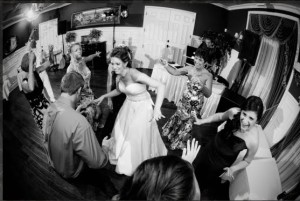I still stand by what I said during my first semester of grad school:
Everybody should take one good counseling class — something basic, like Foundations of Mental Health Counseling or something practical, like Dynamics of Marriage and Family Therapy.
But in case everyone isn’t granted that opportunity, I feel compelled occasionally to share some of what somebody would get out of a good counseling class. Something like the Four Horsemen of the Apocalypse — not the ones you read about in the book of Revelation, but the ones that marriage researcher and therapist John Gottman points out as predictors of divorce.
According to my Dynamics of Marriage and Family textbook (1), “it is not the exchange of anger that predicts divorce, but rather four forms of negativity that Gottman calls ‘The Four Horsemen of the Apocalypse.'”
As a result of Gottman’s study, he can predict with lots of accuracy whether a couple will divorce based on their use of the “four horsemen” in their interactions. What are the horsemen? Criticism, defensiveness, contempt and stonewalling.
Criticism is an attack on a person’s character. The focus is on the spouse instead of on the spouse’s disagreeable behavior. So, let’s say a husband routinely doesn’t warn his wife that he’ll be home late from work. If she responds with criticism, she’ll probably say something like the following: “I cannot believe you didn’t call me again. I am pretty sure there is something seriously wrong with you.” or “You are so frustrating! If you were a responsible adult, you would have told me in advance you’d be home late.”
Defensiveness is “warding off a perceived attack,” according to one great summary of the four horsemen (2). This spouse tends to make excuses for his or her behavior, or to respond to complaints with complaints of his or her own. So after the wife from our scenario says, “I am pretty sure there is something seriously wrong with you,” the defensive husband might say something like, “Yeah? Well, I think there’s something wrong with you because you used all the hot water this morning, again, and I had to take a cold shower.”
Contempt is name calling, eye rolling, insulting, hostility, hurtful sarcasm, harsh tones of voice. It’s ultimately emotional or psychological abuse. Pretty self explanatory.
Stonewalling is emotional withdrawal. It can look like the silent treatment, one word responses or physically leaving the room rather than responding to your spouse. So if after the wife from our scenario criticizes her husband for not telling her he’d be home late from work, he crosses his arms and sits silently or only says, “Yep.” and nothing more, he’s stonewalling.
I’d venture to say that for most humans, not doing these things is easier said than done. But I think we are all ahead when we are a) aware of them and b) aware that their presence plays a big role in a couple’s inability to work through conflict. I also have a hunch that the horsemen show up in an emotions/behaviors cycle that — though seemingly endless — can be broken if a couple commits to breaking it.
So, for instance…
1. Husband works late every night and never calls to warn his wife about it (husband’s behavior). So…
2. Wife feels neglected (wife’s emotion). So…
3. Wife yells at (criticizes) husband when he gets home (wife’s behavior). So…
4. Husband feels attacked, and therefore disrespected by and angry at his wife, and therefore doesn’t much like to be at home (husband’s emotion).
So…
1. Husband works late every night and never calls to warn his wife about it (husband’s behavior).
You see where this is headed.
And where the cycle actually starts is moot. (It doesn’t matter if the chicken or the egg came first.) What’s important is that a couple a) becomes aware that what they always do isn’t working and that b) the awareness of that propels them into doing something different. “If you always do what you’ve always done, you’ll always get what you’ve always got.”
So maybe, to start, the husband changes things up by calling his wife mid-day to warn her he’ll be home late again tonight. Or — better yet — he arranges to be home at a decent hour. So rather than feeling neglected, his wife feels informed, or loved, or like she’s important to him. And when they see each other at home for the first time since morning, because of what she feels, she greets him with a kiss instead of with criticism, and maybe tells him she appreciates that he called or came home early. And — naturally — her husband feels respected (or, at least not disrespected) or loved and discovers that being at home isn’t so bad after all.
This, of course, is also always easier said than done. But it is doable. And according to Gottman, the need to do it isn’t necessarily bad.
In a study he did with Krokoff in 1989, he concluded that “while conflict engagement (that is, direct, if angry, expressions of dissatisfaction) between partners might cause marital distress in the short run, such confrontation is likely to lead to long-term improvement in marital satisfaction by forcing couples, together, to examine areas of disagreement. (1)”
– – – –
1. From this book.
2. From this summary.


